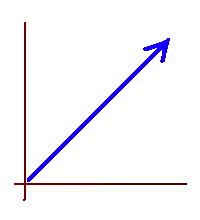A very important foundation for understanding math
Sometimes I see students who are really intelligent but who are having problems at school understanding new material. Some of these students only need to go over a few specific examples to grasp the concepts and move on to the next topic. So it is sad and almost unbelievable to discover that, in a few cases, the real obstacle standing on their way is that they do not know the multiplication tables! I remember when I was in second grade I hated learning the multiplication tables because the repetition process was so boring and it seemed meaningless to me at the time. However, in third grade I discovered the benefits of knowing by heart the multiplication tables. It allowed me to understand division. Understanding division allowed me to build a solid understanding of fractions.
In this time and age, many generations have grown up and gone through school using pocket calculators. A few people have made it all the way to college without ever learning how to multiply two numbers without using a calculator. The problem for them is, the more advanced the math courses they take, the more trouble they have at trying to figure out how formulas work by looking at specific examples. They cannot think their way through the examples because they don't know their multiplication tables; therefore their mastery of division, fractions and exponents is very limited and shaky.
To students who are preparing for the GMAT, GRE or CBEST, I always recommend to review, polish, extend and reinforce their knowledge of multiplication tables. The importance of this foundation cannot be stressed enough.
Playing to Learn
-
“Play and rigor support each other. “When students are invited to play with
math, they learn more deeply, more robustly, and remember more
consistently. “P...
15 hours ago




